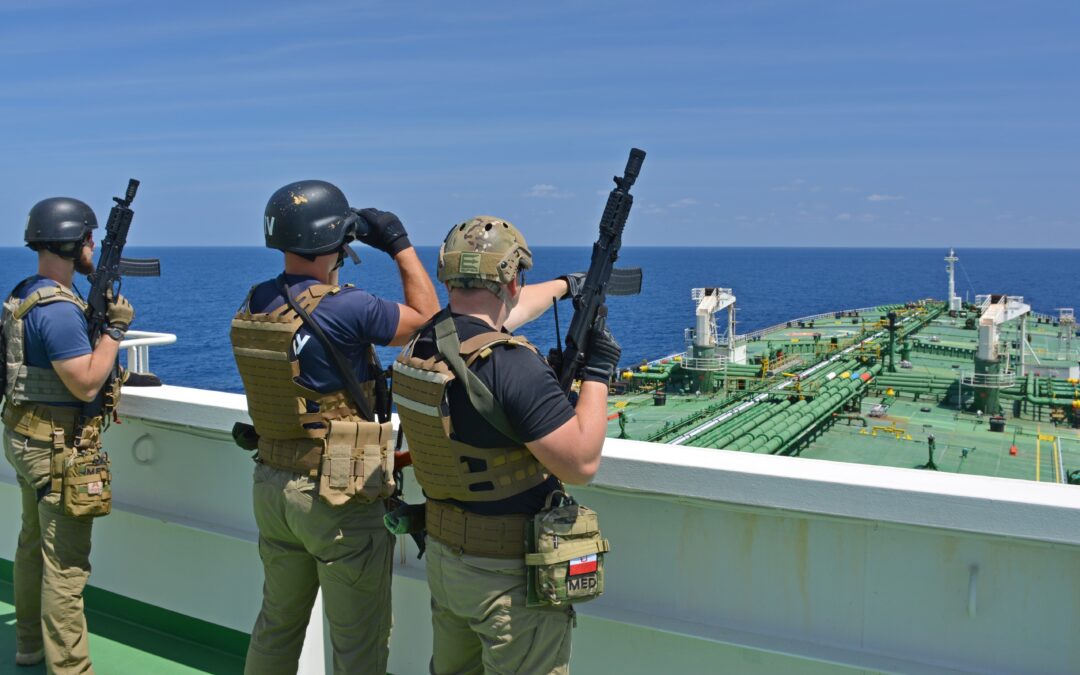Image: Shutterstock
What’s New: National Defense University paper with three important messages just in the title!
- PNT = Weapon
- Maritime, like other domains, is incredibly dependent on PNT.
- We are in a world of great power conflict wherein every weapon available is and will be used.
Why It’s Important: “The maritime domain is often overlooked in its criticality to U.S. national security.” – from the paper.
What Else to Know: GPS and AIS have enabled maritime domain awareness to improve by orders of magnitude in the last ten years.
- While jamming and spoofing counter some of the increased awareness, they also allow forces to detect and respond to anomalies that are likely criminal or adversarial activities.
- Our impression is that there are so many anomalies, it is difficult for forces to prioritize and respond to them all.

Position, Navigation, and Timing Weaponization in the Maritime Domain: Orientation in the Era of Great Systems Conflict
By Diane M. Zorri and Gary C. Kessler Joint Force Quarterly 112
Deception, confusion, and targeting of weak points in modern warfare is as ubiquitous now as it was in the wars of antiquity.1 Likewise, the incongruity between perception and reality has been explored for centuries. Understanding what is real is still a challenge for humankind. How does the human learn to “see” through the fog of deception? With the mind’s ability to emphatically alter perceptions, modern society has become increasingly reliant on technology. Yet even technology can be deceptive, and, as Sun Tzu observed, “all warfare is based on deception.”2
Strategists have long recognized that naval superiority and control of maritime assets are paramount in establishing global influence.3 Alfred Thayer Mahan noted that although navies have an essential utility in safeguarding global trade and communications, a small naval force could overwhelm a much larger one by concentrating efforts on its adversary’s key vulnerabilities. Consequently, when a country’s maritime assets come under attack, it may have far-reaching geopolitical, military, and economic implications. The sinking of the USS Maine (1898) and RMS Lusitania (1915), as well as the attacks on the USS Maddox and USS Turner Joy (1964), precipitated major conflicts and sustained military campaigns. While the U.S. Navy remains the largest and most expeditionary force in the world, smaller forces, malign powers, and irregular adversaries are disrupting maritime transit and naval assets using new and innovative techniques. These techniques often involve a “system of systems” approach, where malign actors confront adversaries through critical components of operational systems.4 Two of the most persistent threats to maritime security and superiority in the great systems conflicts of the 21st century stem from vulnerabilities in two of the technologies that enable position information, navigation, timing, and situational awareness: the Global Positioning System (GPS) and the Automatic Identification System (AIS).5


